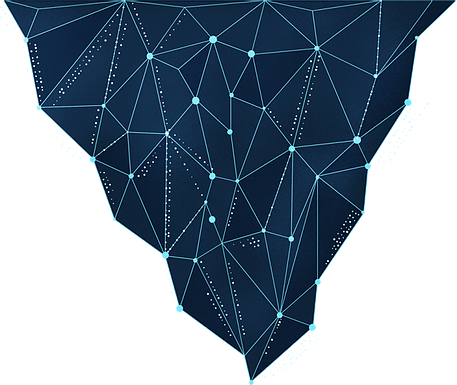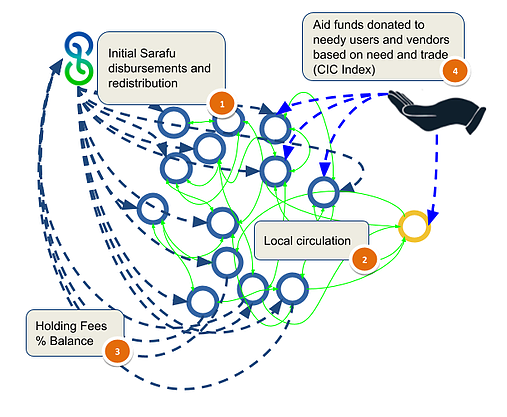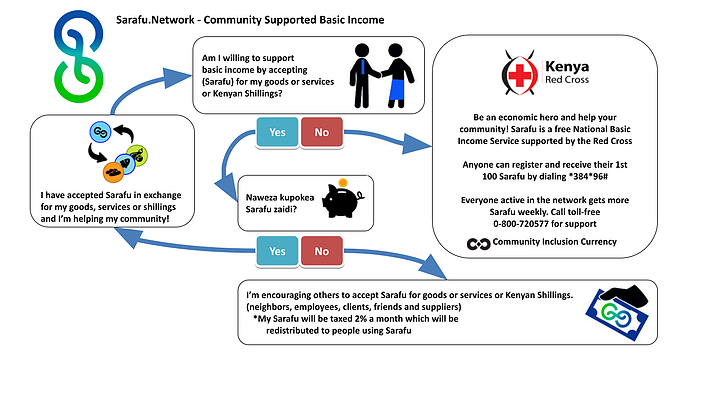Sarafu.Network
Grassroots Economics' is building and supporting systems that empower communities to digitally create their own basic incomes and community inclusion currencies (CICs) based on local goods and services in regional markets that are built from the ground up. Sarafu Network is the premier CIC system in Kenya.

Distributed ledger technology provides underlying protocols that allow Community Inclusion Currencies (CIC) to trade with each other directly through common reserve pools. USSD technology enables any cell phone (even without internet) to have access.


Sarafu -Network Token
- Sarafu infrastructure is supported by humanitarian orgs and allows anyone in Kenya to receive Sarafu tokens.
- The more Sarafu circulates the more it builds resilient local economies and support vulnerable households.
- Holding fees (in Sarafu) encourage users to spend their Sarafu. These fees then supply further funding for basic income in Sarafu.
- Humanitarian orgs use Sarafu trade data to identify weak spots for capacity building.
- Note that no Kenyan Shillings are exchanged for Sarafu
- The total Sarafu supply is ~16 Million and grows as people and groups join the network.
- In Kenya dial *384*96# (Safaricom) *483*46# (Airtel) to get your first 50 Sarafu and talk with our team +254-(0)757628885 to verify your information to get another 50 Sarafu.
- Get more Sarafu weekly the more you connect to others. This acts like a basic income and there is no cost to join. The Sarafu for these weekly distributions as well as initial allotments are refilled from a holding fee of 2% of your Sarafu each month.

Build your own Community Inclusion Currency (CIC)
- A community identifies projects and productive capacity (goods and services) that will back their CIC which is a mutual credit for that community.
- A supply of such a CIC can be added to a community liquidity pool that connects it to other CICs or the whole Sarafu network.
- Note that no Kenyan Shillings are exchanged for Sarafu or CIC and no Kenyan Shillings are used from community or chama accounts.


The full Sarafu Network
- Sarafu acts as a basic income while also providing a way for people to connect CICs together
- Users can exchange various CICs among each other so communities can create support networks among themselves.




